
The twelve-inch single is a type of vinyl gramophone record that has wider groove spacing and shorter playing time with a "single" or a few related sound tracks on each surface, compared to LPs which have several songs on each side. It is named for its 12-inch (300 mm) diameter that was intended for LPs. This technical adaptation allows for louder levels to be cut on the disc by the mastering engineer, which in turn gives a wider dynamic range, and thus better sound quality. This record type, which is claimed to have been accidentally discovered by Tom Moulton, is commonly used in disco and dance music genres, where DJs use them to play in clubs. They are played at either 33+1⁄3 or 45 rpm. The conventional 7-inch single usually holds three or four minutes of music at full volume. The 12-inch LP sacrifices volume for extended playing time.
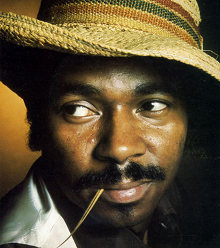
Van Allen Clinton McCoy was an American record producer, arranger, songwriter and singer. He is known for his 1975 internationally successful hit "The Hustle". He has approximately 700 song copyrights to his credit, and produced songs by such recording artists as Brenda & the Tabulations, David Ruffin, The Stylistics, The Presidents, Faith, Hope & Charity, New Censation, Gladys Knight & the Pips, Aretha Franklin, Peaches & Herb, Lesley Gore, and Stacy Lattisaw.
"Gonna Get Along Without Ya Now" is a popular song written by bandleader and occasional songwriter Milton Kellem The first known recorded version was released in 1951 by Roy Hogsed. Since then it has been done in several styles and tempos.

Enoch Henry Light was an American classically trained violinist, danceband leader, and recording engineer. As the leader of various dance bands that recorded as early as March 1927 and continuing through at least 1940, Light and his band primarily worked in various hotels in New York. For a time in 1928 he also led a band in Paris. In the 1930s Light also studied conducting with the French conductor Maurice Frigara in Paris.

Hubert Neal McGaughey Jr., known professionally as Neal McCoy and previously as Neal McGoy, is an American country music singer. He has released 10 studio albums on various labels, and has released 34 singles to country radio. Although he first charted on the Billboard Hot Country Songs chart in 1988, he did not reach the top 40 for the first time until 1992's "Where Forever Begins", which peaked at number 40. McCoy broke through two years later with the back-to-back number one singles "No Doubt About It" and "Wink" from his platinum-certified album No Doubt About It. Although he has not topped the country charts since, his commercial success continued into the mid to late 1990s with two more platinum albums and a gold album, as well as six more top 10 hits. A ninth top 10 hit, the number 10 "Billy's Got His Beer Goggles On", came in 2005 from his self-released That's Life.

"Until You Come Back to Me (That's What I'm Gonna Do)" is a song written by Morris Broadnax, Clarence Paul, and Stevie Wonder. The song was originally recorded by Stevie Wonder in 1967, but his version was not released as a single and did not appear on an album until 1977's anthology Looking Back. The best-known version of this song is the 1973 release by Aretha Franklin, who had a million-selling top 10 hit on Billboard charts. The song reached No. 1 on the R&B chart and No. 3 on the Hot 100 chart in 1974. It became an RIAA Gold record.
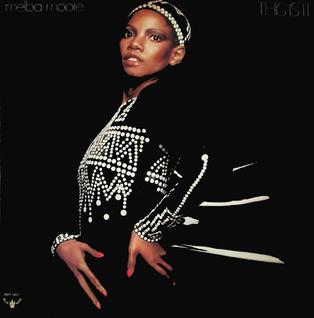
"This Is It" is a 1976 disco song written by Van McCoy, and performed by American singer and actress Melba Moore for her fifth album of the same name (1976).
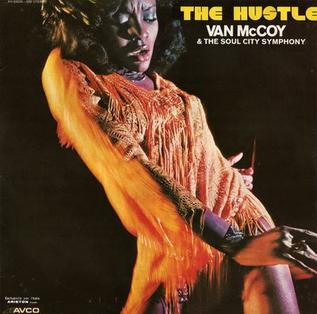
"The Hustle" is a disco song by songwriter/arranger Van McCoy and the Soul City Symphony. It went to No. 1 on the U.S. Billboard Hot 100 and Hot Soul Singles charts during the summer of 1975. It also peaked at No. 1 on the Canadian RPM charts, No. 9 on the Australian Singles Chart and No. 3 in the UK. It would eventually sell over one million copies. The song won the Grammy Award for Best Pop Instrumental Performance early in 1976 for songs recorded in 1975.
Faith Hope and Charity was the name of a vocal group from Tampa, Florida. They are best known for their 1975 hit, "To Each His Own". They were also an in-demand group of session singers in New York studios during the 1970s.
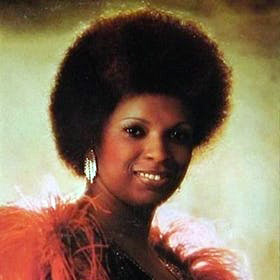
Zulema Cusseaux, usually credited as Zulema, was an American disco and R&B singer and songwriter. Aside from her solo career, she was a member of an early line up of Faith, Hope and Charity and worked as a backing vocalist and songwriter with Aretha Franklin.

Marvin Louis Stamm is an American jazz trumpeter.
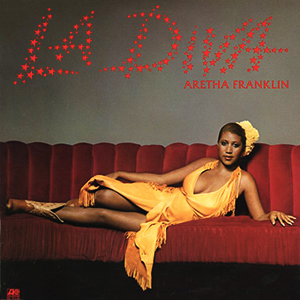
La Diva is the twenty-fifth studio album by American singer Aretha Franklin, released on September 6, 1979, by Atlantic Records. The album marked the end of her 12-year tenure with Atlantic and a run of 19 original albums. The album was a commercial flop as the singer attempted to make a comeback by recording a disco-oriented project with producer Van McCoy. It was McCoy's final work as he died in June of that year; the record was released as disco was running its course.

"Walk Away from Love" is a song recorded by American singer David Ruffin in 1975. The million-selling single, produced by Van McCoy and written by Charles Kipps, was number one on the US R&B Singles Chart for one week in early 1976, and crossed over to #9 on the Pop Charts. In Canada, the song peaked at #30.
"Doctor's Orders" is a song written by Roger Cook, Roger Greenaway and Geoff Stephens which, in 1974, was a hit in the UK for Sunny of Sue and Sunny; in the US the song was a hit for Carol Douglas.

"Hi-Jack" is a 1974 r&b and funk disco based song written by Spanish musician Fernando Arbex and originally recorded by his group Barrabás for their album ¡Soltad a Barrabás!. While their version of the song was a huge success in their native Spain, going all the way to Number one over there, the song flopped in America, stalling at just number No. 104 on the Bubbling Under the Billboard Hot 100 Charts in July 1975. It was later a hit single for jazz flautist Herbie Mann.
The Choice Four were the most consistent of the male American soul/vocal groups produced by Van McCoy. They were from Washington, D.C., recorded for RCA Records and had three albums. Several of the group's members had previously sung in The Love Tones and The Stridels. They had several minor hits on the Billboard charts in the mid-1970s. Their attempt to hit big with their version of "When You're Young and In Love" was thwarted by the simultaneous release of a disco version of the song by actor Ralph Carter. Their biggest hit, '"Come Down to Earth" became a favorite in the discos after the group had broken up. They recorded the original version of the David Ruffin hit "Walk Away From Love", hitting the high note that Ruffin famously missed. Both Pede "Pete" Marshall and Charles Blagmon went on to tour with groups led by former members of The Temptations after the group's demise, prior to its revival by Teddy Maduro.
Gene Orloff was an American violinist, concertmaster, arranger, contractor and session musician.

Charley is the twentieth studio album by American country music artist Charley Pride. It was released in May 1975 via RCA Victor Records and was produced by Jack Clement. The record was Pride's twentieth studio album released in his career and contained a total of ten tracks. The album included two singles which became major hits that year on the country chart: "I Ain't All Bad" and "Hope You're Feelin' Me ."

The Happiness of Having You is the twenty-first studio album by American country music artist Charley Pride. It was released in November 1975 via RCA Victor Records and was produced by Jerry Bradley. It was Pride's twenty first studio recording released in his music career and contained ten tracks. The album included two singles which became major hits on the country charts: "My Eyes Can Only See as Far as You" and the title track.
Change with the Times was a disco R&B song by Van McCoy, featuring him on lead vocals, that was a hit on the R&B charts in 1975. It would end up not making much impact in the pop charts.














